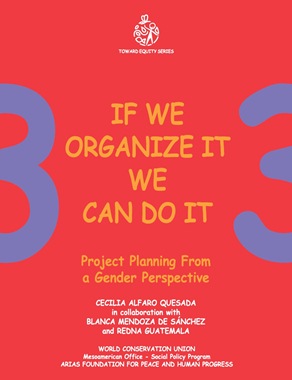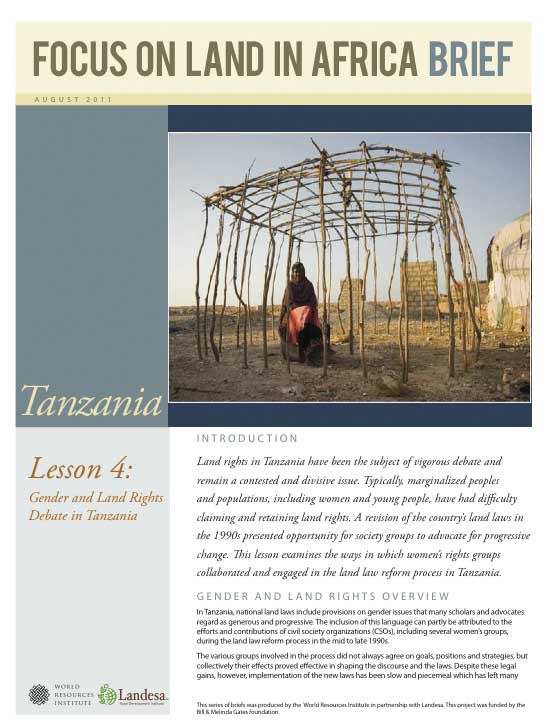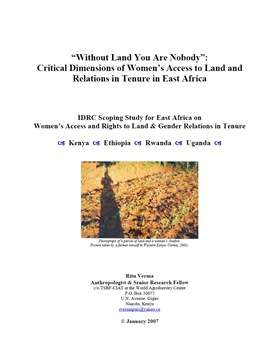Module 3: If We Organize it We Can do it: Project Planning from a Gender Perspective
Taking the step from appraisal to action using planning techniques that respond to the needs expressed by women and men.
This is a module for project planning from a gender perspective. It outlines experiences learned by various projects in Central America and provides practical guidleines for how to manage gender equity in the plannig process of a project.
You can download this module from the International Union for Conservation of Nature's website (IUCN).












